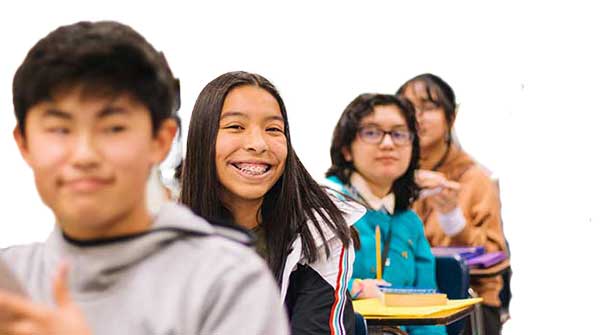… but to improve them we need to look at real data
 A parent recently stood up in a school board meeting in my community and shared his opinion. He said, “Our education system is not doing a whole lot to provide our children with the necessary life skills and the education that they deserve …We are here to … make our children have purpose again and be confident in who they are and get the education they deserve without the confusion.”
A parent recently stood up in a school board meeting in my community and shared his opinion. He said, “Our education system is not doing a whole lot to provide our children with the necessary life skills and the education that they deserve …We are here to … make our children have purpose again and be confident in who they are and get the education they deserve without the confusion.”
Particularly disturbing was a list of “facts” that would be virtually impossible to verify. The speaker stated, “Bullying is up” and “The number of children confused about their gender is up.”
Up as compared to what? Bullying went largely unreported in the past. What was once considered tolerable behaviour (for example, making racist and homophobic slurs) would rightly result in school suspensions today. Bullying has not been eliminated from our schools or in our children’s lives, but we are hopefully more mindful of forms of harassment and more proactive in dealing with these issues.
 Photo by Jeswin Thomas |
| Related Stories |
| Public schools failing to produce enough STEM graduates
|
| How to help your child read better
|
| With information overload comes great responsibility
|
Similarly, how can we say children are more confused about their gender? Few of us openly explored our gender in the past because we all knew that, if we did, we’d get bullied. Given the more open atmosphere created through the courageous efforts of those who challenge gender norms in our society, our young people have greater freedom to explore and ultimately clarify their respective genders.
When it comes to helping young people find meaning and learn valuable life skills, I have some data that can be analyzed and scrutinized. In my Social Justice 12 class, we remove the pretty wrappings from the history lessons many of us learned in the past. We seek to understand how social injustice can lead to genocide, why genocide happens, how we can respond effectively to genocidal tendencies in society, and ultimately how we can prevent genocide in the future. At the end of the course, I ask my students to evaluate their experience so that I can continue to improve the program.
The data I collected last semester is consistent with my findings over the years. One hundred percent of the students enjoyed the course, found the academic and behavioural expectations clear, and would recommend the course to other students. Seventy-eight percent said they were more aware of suffering and genocide in the world, 50 percent said they were more likely to speak out when they heard discriminatory comments, and 28 percent said they were more likely to take action to make the world more just.
When I ask students what memories of the class stand out to them, two assignments are frequently mentioned. One is our study of Man’s Search for Meaning, the account of survival in Nazi concentration camps by Viktor Frankl. The other is a research project in which students are free to research social justice issues they find interesting. These vary from investigating the negative aspects of abortion to the challenges faced by the 2SLGBTQ+ community.
As long as students do appropriate research, respectfully present their findings, and there is respectful classroom discussion, my responsibilities as a professional educator are met, and my students learn of the importance of honouring diversity in a democratic society.
I am a typical teacher, teaching a typical class in a typical school to ordinary adolescents. I am teaching the skills our young people need in the future, and I am working to instill a sense of meaning and purpose in their lives. That is what my colleagues are doing throughout my school, school district, province, and my entire profession.
Our school systems are far from perfect, but, to improve them, we need to look at real data.
Truth is not found by arguing from a false premise.
Gerry Chidiac specializes in languages, genocide studies and works with at-risk students. He is the recipient of an award from the Vancouver Holocaust Education Centre for excellence in teaching about the Holocaust.
For interview requests, click here.
The opinions expressed by our columnists and contributors are theirs alone and do not inherently or expressly reflect the views of our publication.
© Troy Media
Troy Media is an editorial content provider to media outlets and its own hosted community news outlets across Canada.


The world needs more teachers like Gerry Chidiac.